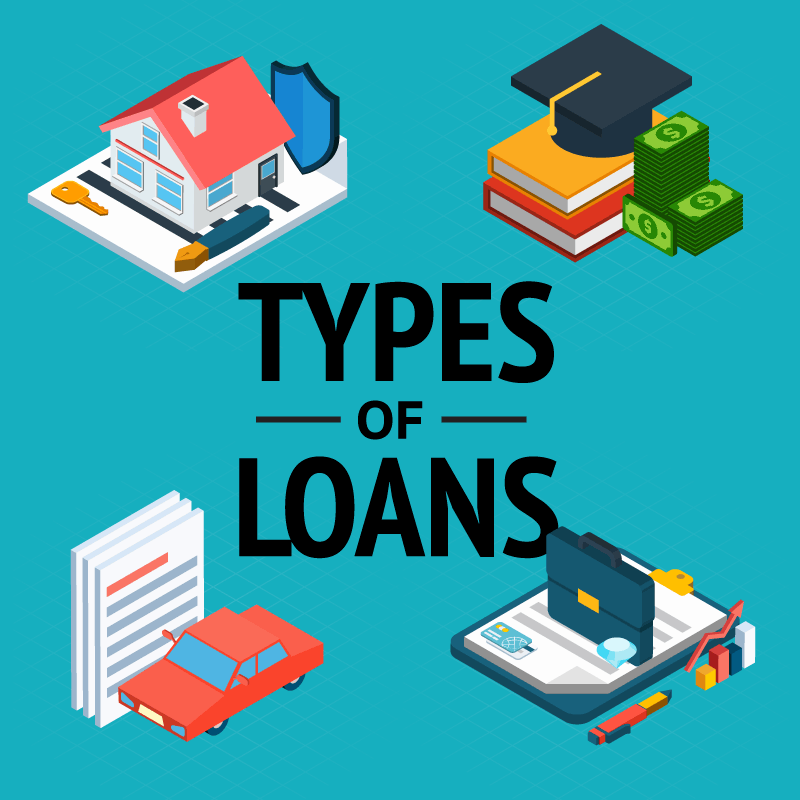Find out how Cash Advance Payday Loans can help with urgent financial goals
A Comprehensive Overview to Home Loans: Provider and Options Explained
Charting the globe of home finances can be complicated. Various choices exist, each with special features and effects for prospective homeowners. Comprehending the distinctions in between government-backed and traditional finances is necessary. The application process entails careful documentation and pre-approval actions that several ignore. As consumers commence on their home-buying journey, understanding exactly how to take care of these responsibilities successfully can mean the distinction between financial security and hardship. What methods can empower them on this course?
Understanding Home Loans: Types and Terminology
Comprehending the numerous sorts of home fundings and their linked terms is vital for possible property owners, as it equips them with the understanding needed to make educated economic choices. Mortgage can be broadly categorized right into fixed-rate and adjustable-rate home loans. Fixed-rate mortgages maintain a consistent rate of interest over the life of the funding, providing stability in month-to-month repayments. Conversely, variable-rate mortgages feature rates of interest that may fluctuate after an initial set duration, potentially bring about lower initial repayments however raised future expenses.
Added terms is essential for clarity. Principal refers to the finance quantity obtained, while passion is the price of loaning that quantity. The regard to the lending shows its period, usually ranging from 15 to three decades. Understanding these fundamental principles allows potential purchasers to browse the facility landscape of home financing, guaranteeing they select the right car loan option that lines up with their economic situation and long-term goals.
Standard Financings vs. Government-Backed Loans
A substantial distinction in home funding exists between government-backed lendings and standard fundings, each satisfying different consumer needs and situations. Conventional fundings are not guaranteed or ensured by the government and generally need higher debt ratings and down repayments. They are usually appealing to customers with secure monetary histories, as they might supply competitive passion rates and terms.
In comparison, government-backed lendings, such as FHA, VA, and USDA finances, are developed to aid certain groups of customers, including new buyers and professionals. These lendings normally feature lower down repayment demands and even more flexible credit score criteria, making them available to a broader variety of people.
Ultimately, the selection in between government-backed and standard loans pivots on the borrower's financial situation, long-term objectives, and qualification, making it necessary to very carefully examine both choices before choosing.
The Duty of Rate Of Interest in Home Financing
Rates of interest play an important duty in home financing, affecting debtors' decisions between variable and fixed price finances. The option between these choices can considerably affect monthly settlements, influencing total affordability. Understanding exactly how rate of interest prices operate is vital for anybody steering with the mortgage procedure.
Taken Care Of vs. Variable Rates
Property buyers face a crucial choice when selecting in between repaired and variable prices, as this choice significantly impacts the cost of financing over time. Fixed-rate home mortgages supply security, securing in a rates of interest for the life of the finance, which can be beneficial in a climbing passion rate setting. This predictability allows house owners to spending plan much more efficiently. Alternatively, variable-rate mortgages, or variable-rate mortgages (ARMs), commonly start with reduced initial rates that can change based upon market conditions. While this may lead to reduced first payments, customers deal with the risk of boosted prices in the future. Ultimately, the choice between variable and fixed rates depends upon individual economic circumstances, threat tolerance, and expectations relating to future passion price patterns.
Effect On Monthly Settlements
When assessing home funding options, the effect of rates of interest on month-to-month repayments is a key aspect to consider. Rate of interest straight affect the general price of borrowing, impacting just how much a consumer will pay monthly. A reduced rate of interest price cause smaller regular monthly settlements, making homeownership extra budget-friendly. On the other hand, higher rates can greatly boost regular monthly commitments, potentially straining a house owner's budget. In addition, the car loan term plays an essential role; longer terms may spread settlements out however can result in paying even more rate of interest gradually - Cash Loans. Comprehending exactly how rates of interest engage with funding amounts and terms is essential for consumers to make educated financial choices and select a mortgage that straightens with their long-lasting financial goals
Mortgage Brokers vs. Straight Lenders: Which Is Right for You?
When thinking about a home loan, potential debtors must understand the unique roles and obligations of mortgage brokers and direct lending institutions. Each choice presents its own advantages and negative aspects, which can substantially affect the general price of financing. An enlightened option needs careful analysis of these variables to identify the best fit for specific demands.
Duties and functions Defined
Steering the complexities of home financing requires a clear understanding of the duties and obligations of home loan brokers and straight loan providers. Cash Loans. Home mortgage brokers serve as intermediaries, linking customers with loan providers. They evaluate a borrower's monetary situation, curate finance options, and guide customers via the application procedure, frequently leveraging several loan provider partnerships to safeguard positive terms. Alternatively, straight lending institutions, such as financial institutions and debt unions, provide fundings directly to debtors. They manage the entire finance procedure, from application to funding, with a concentrate on their very own products. Each alternative provides distinctive avenues for acquiring financing, making it important for debtors to review their requirements and choices when determining in between involving a home loan hop over to these guys broker or dealing with a direct lending institution
Disadvantages and pros Comparison
Choosing between a mortgage broker and a direct loan provider can substantially influence the home financing experience, as each option uses one-of-a-kind benefits and disadvantages. Home mortgage brokers offer as intermediaries, offering access to several lenders and potentially far better prices, while streamlining the car loan procedure. They might bill costs and rely on compensation frameworks that might affect their suggestions. On the other hand, straight lending institutions enhance the process by supplying internal lendings, which can bring about faster authorizations and fewer issues. Conversely, they may have a minimal choice of products and less versatility concerning prices. Inevitably, the decision pivots on specific preferences, financial situations, and the desired degree of support throughout the home mortgage trip.
Price Ramifications Evaluated
While assessing the cost effects of home loan brokers versus straight lenders, prospective home owners have to take into consideration different aspects that can greatly influence their general expenses. Home mortgage brokers normally bill fees for their solutions, which can vary substantially, affecting the overall funding expense. They typically have accessibility to a bigger range of car loan items and competitive rates, potentially saving customers money in the long run. On the other hand, direct lenders may use a more straightforward process with perhaps reduced in advance costs, but their financing options might be limited. It is vital for house owners to contrast rate of interest prices, charges, and terms from both lenders and brokers, guaranteeing they make an enlightened decision that lines up with their financial goals and requirements.
The Mortgage Application Process: What to Anticipate
The home lending application process can usually feel frightening for many applicants. It typically begins with gathering required paperwork, including evidence of earnings, credit report, and personal recognition. Lenders use this details to examine the applicant's financial security and identify lending qualification.
Next, candidates submit an official application, which may entail filling up out on-line types or offering information personally. During this phase, lenders evaluate numerous variables, such as debt-to-income ratio and credit history, to pick financing terms.
Once pre-approved, the lending institution will carry out a comprehensive evaluation of the residential or commercial property to determine its worth straightens with the car loan quantity. This phase might likewise consist of extra background checks.
After last authorizations and problems are met, the funding is refined, leading to the closing stage. Comprehending each action equips candidates, making the trip smoother and a lot more manageable as they approach homeownership.
Tips for Managing Your Home Finance Properly
Successfully maneuvering the mortgage application process is just the beginning of a responsible monetary trip. Taking care of a mortgage needs attention to a number of key techniques. Borrowers ought to establish a clear budget that accommodates month-to-month home mortgage settlements, building tax obligations, and insurance policy. Regularly reviewing this spending plan aids stop overspending and assurances timely payments.

Additionally, making additional repayments when feasible can substantially lower the financing principal and complete passion paid find more information with time. Consumers must additionally maintain open lines of communication with their lender, specifically in times of economic trouble - Cash Advance. This can lead to potential remedies such as lending alterations or refinancing options
Lastly, it is advisable to keep an eye on credit report ratings on a regular basis. A great credit report can supply opportunities for far better financing terms in the future. By adhering to these tips, house owners can browse their finance responsibilities successfully, assuring lasting economic wellness and security.
Regularly Asked Concerns
What Are Closing Costs and Exactly How Are They Determined?
Closing expenses include fees related to finalizing a mortgage, including appraisal, title insurance coverage, and lending origination charges. These expenses usually vary from 2% to 5% of the finance quantity, varying based on location and loan provider.

Can I Receive a Mortgage With Bad Debt?
Yes, individuals with poor credit history can get a home mortgage, though choices might be limited. Lenders commonly need greater down payments or rate of interest, and checking out government-backed lendings may enhance possibilities of authorization.
What Is Mortgage Insurance coverage and When Is It Required?
Home loan insurance policy safeguards lending institutions against default and is normally required when a debtor makes a deposit of less than 20%. It guarantees that lending institutions recoup losses if the debtor fails to pay back the lending.
Exactly How Does Refinancing Job and When Should I Consider It?
Refinancing entails changing an existing mortgage with a new one, generally to secure a reduced interest price or modification lending terms. Home owners need to think about refinancing when rates of interest drop substantially or their go to the website economic circumstance improves.
What Takes place if I Miss a Home Loan Payment?
If a mortgage payment is missed out on, the loan provider typically analyzes late charges, reports the delinquency to credit report bureaus, and might start foreclosure proceedings if payments remain to be disregarded, ultimately jeopardizing the property owner's home.
Fixed-rate home loans maintain a regular rate of interest rate over the life of the financing, giving security in monthly settlements. A significant difference in home funding exists between traditional loans and government-backed fundings, each catering to various customer demands and scenarios. In contrast, government-backed financings, such as FHA, VA, and USDA loans, are made to help details groups of consumers, including new buyers and veterans. Passion rates play an essential role in home funding, influencing consumers' choices between variable and fixed rate car loans. Fixed-rate home loans supply stability, securing in an interest rate for the life of the finance, which can be beneficial in an increasing passion rate environment.